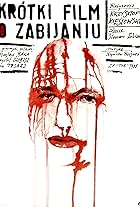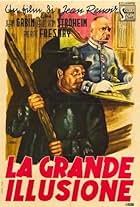Laurent Terzieff is at the center of this powerful statement on conscientious objection, war and justice. Terzieff is brilliant as Jean-François Cordier, a young French citizen who, when called for compulsory military service in 1949, refuses to comply based on his objection to war and violence. Though given opportunities to avoid punishment (an offer of a desk job, or objection on religious grounds) he stands his ground, even refusing the court appearance of a priest on his behalf. Watching him so obstinately stick to his guns, as a pure objector is a gripping experience, thanks to Terzieff's acting and an excellent screenplay by Jean Aurenche and Pierre Bost. In contrast to Cordier there is also Horst Frank, equally good as Adler, a German soldier who had been ordered to execute a French partisan in 1944. Adler's agonizing story is seen in a flashback that is as powerful as Cordier's statement, but not necessarily equal to it. This is where the film asks difficult questions: is a soldier guilty of a crime if he is carrying out orders, no matter how unjust, and remains distraught about the killing years later? And is Cordier less guilty of a crime because he has not killed anyone, but only objects to war and military service? The narrative of the film offers answers, but the viewer is left to decide for him or herself. Also featured in the film is Suzanne Flon, as Cordier's mother, who gives a performance of genuine depth.
A great film from director Claude Autant-Lara, it had a troubled history with its pacifist message. The French government would not support its production, due to current involvement in the Algerian War, so financial aid came from Yugoslavia. The film was never properly recognized by France, where it was poorly received by critics (probably for political reasons). It has remained obscure ever since and can sometimes be seen in an Italian-dubbed version.














